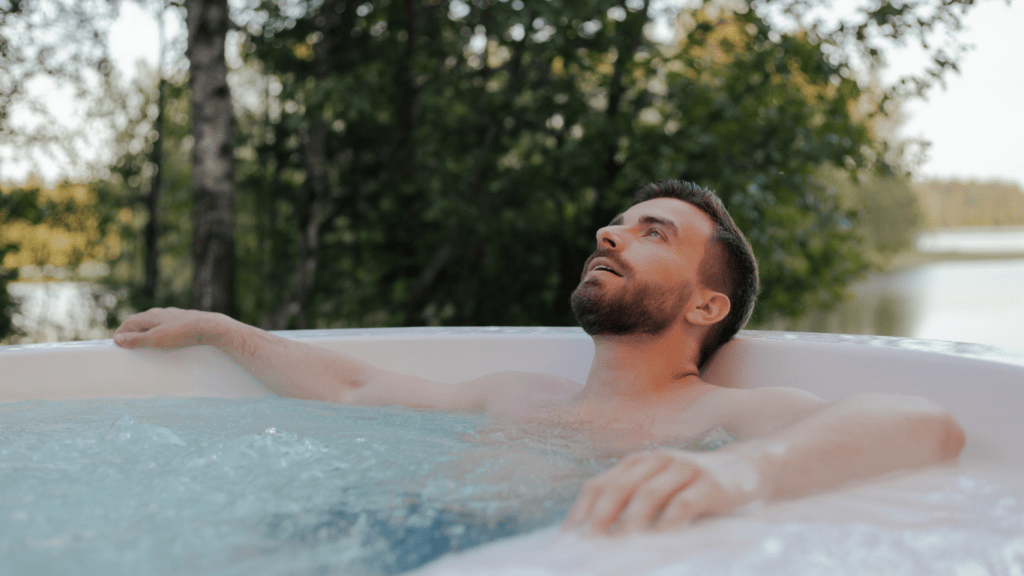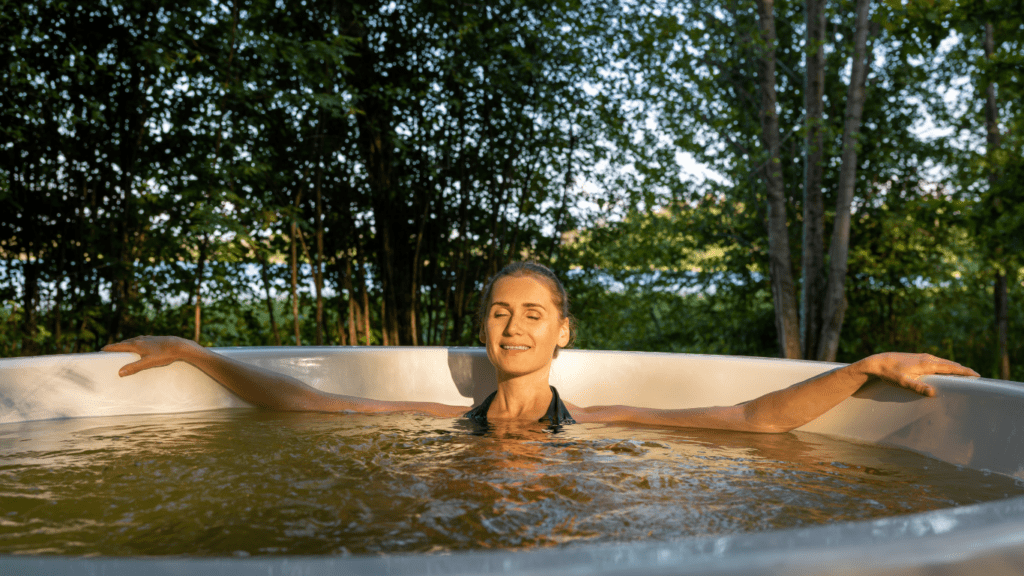Overview of Water’s Healing Properties
Water possesses unique healing properties that benefit both mental and physical health. Studies show that being near water reduces stress and anxiety levels. For instance, people who live near oceans or lakes report lower stress levels.
Water-based activities offer physical health benefits. Swimming improves cardiovascular health and muscle strength. Hydrotherapy alleviates chronic pain and enhances joint flexibility. People with arthritis find relief through warm water exercises.
Water’s soothing sounds promote relaxation. The sound of waves or rain induces calm and improves sleep quality. Apps often incorporate water sounds like flowing rivers or ocean waves for meditation and sleep aid.
Several spa treatments use water for skin health. Hydrotherapy treatments, including mineral baths and whirlpools, rejuvenate the skin. These treatments improve blood circulation and skin elasticity.
Water’s ability to surround and support the body gives a sense of weightlessness. This sensation reduces muscle tension and enhances relaxation. For example, flotation therapy involves floating in saltwater to relieve stress and pain.
Incorporating water into everyday life can improve well-being. Drinking sufficient water maintains hydration and supports bodily functions. Proper hydration boosts energy levels and improves concentration.
Historical Perspectives
Water’s healing properties have been recognized for centuries. Ancient cultures and the evolution of hydrotherapy provide rich examples of its therapeutic applications.
Ancient Cultures and Water Therapy
Ancient Egyptians valued water as a vital element in their healing practices. They used mineral baths to treat various ailments and believed in the purifying properties of the Nile’s waters. In ancient Greece, Hippocrates, known as the “Father of Medicine”, endorsed water therapy for its health benefits. He recommended baths in spring water to alleviate illnesses and maintain wellness.
Romans also embraced water therapy, evident in their intricate bathhouses, or “thermae”. These complexes had multiple rooms with varying temperatures and were central to Roman culture. They believed regular bathing in hot and cold water restored balance in the body, promoting relaxation and health.
Evolution of Hydrotherapy
Hydrotherapy’s evolution saw significant advancements during the 18th and 19th centuries. In Europe, Vincent Priessnitz pioneered modern hydrotherapy in the early 1800s. He developed techniques involving cold water applications to treat injuries and illnesses. His methods gained popularity, leading to the establishment of numerous hydrotherapy institutions.
Sebastian Kneipp further contributed to hydrotherapy’s development in the late 1800s. Kneipp, a Bavarian priest, expanded on Priessnitz’s work, advocating for treatments combining water with physical exercise and herbal medicine. His holistic approach laid the groundwork for contemporary hydrotherapy practices, which continue to emphasize water’s healing power in various therapeutic settings.
Scientific Evidence
Extensive research supports water’s healing properties, highlighting both its physiological benefits and psychological effects on the human body and mind.
Physiological Benefits
Several studies corroborate water-based activities’ physical health benefits. According to the Centers for Disease Control and Prevention (CDC), swimming reduces the risk of chronic illnesses, such as heart disease and type 2 diabetes. Water immersion diminishes joint pain and improves flexibility, making it ideal for arthritis sufferers. Flotation therapy reduces muscle tension and accelerates recovery from injuries. Furthermore, hydrotherapy has shown effectiveness in rehabilitation programs for stroke survivors, enhancing motor functions and reducing spasticity (Journal of Physical Therapy Science).
| Activity | Benefit | Source |
|---|---|---|
| Swimming | Reduces risk of chronic illnesses | CDC |
| Water Immersion | Diminishes joint pain, improves flexibility | CDC |
| Flotation Therapy | Reduces muscle tension, accelerates recovery | Journal of Physical Therapy Science |
| Hydrotherapy | Enhances motor functions post-stroke | Journal of Physical Therapy Science |
Psychological Effects
Proximity to water profoundly affects mental well-being. Research conducted by the University of Exeter shows people living near water bodies experience lower levels of anxiety and depression. The sound of water, including waves and rainfall, activates the parasympathetic nervous system, which induces a state of relaxation (Environmental Research). Water-based meditation enhances mindfulness and reduces stress. A study published in the journal Environmental Science & Technology found that blue spaces, such as oceans and lakes, improve mental health and promote emotional stability.
| Factor | Psychological Benefit | Source |
|---|---|---|
| Proximity to Water | Reduces anxiety, depression | University of Exeter |
| Sound of Water | Activates parasympathetic nervous system | Environmental Research |
| Water-based Meditation | Enhances mindfulness, reduces stress | Environmental Science & Technology |
| Blue Spaces | Improve mental health, emotional stability | Environmental Science & Technology |
Different Forms of Water-Based Relaxation

Water-based relaxation offers various methods to soothe the mind and body. Here are some notable forms:
Hot Springs and Thermal Baths
Hot springs and thermal baths harness the earth’s natural heat. Mineral-rich waters provide therapeutic benefits, easing muscle pain and improving blood circulation. Many cultures, such as Japan and Iceland, have long traditions of thermal bathing. These serene environments promote relaxation and stress relief.
Spa Treatments and Hydrotherapy
Spa treatments encompass a range of water-based therapies. Hydrotherapy utilizes water jets, underwater massages, and temperature variations to treat physical ailments. Immersive treatments like Vichy showers and mineral baths rejuvenate the skin and enhance circulation. Regular hydrotherapy sessions contribute to overall well-being and relaxation.
Floating and Sensory Deprivation Tanks
Floating in sensory deprivation tanks isolates the body from external stimuli. Filled with saltwater, these tanks create a weightless environment, promoting deep relaxation and reducing muscle tension. Studies show that floating can alleviate stress and anxiety, enhance mood, and improve sleep quality. Many people use these tanks to achieve a meditative state.
This exploration of water-based relaxation showcases the diverse methods available to enhance physical and mental well-being.
Practical Tips for Incorporating Water Therapy
Engaging with water therapy in day-to-day life fosters relaxation and mental clarity. Simple practices can integrate water’s soothing properties into your routine seamlessly.
At-Home Practices
- Create a Bath Ritual: Fill the tub with warm water, adding Epsom salts or essential oils for enhanced relaxation. Lavender oil promotes calm, while eucalyptus oil opens respiratory pathways.
- Soundscapes: Use apps or sound machines that play water sounds like rain or ocean waves. This can aid in falling asleep faster and achieving deeper rest.
- Hydration: Ensure adequate water intake daily. Staying hydrated maintains bodily functions, boosts energy, and sharpens focus.
- Steam Therapy: Take warm showers to create a steam room effect. Inhale deeply to clear the sinuses and feel tension release.
- Foot Soaks: In a basin of warm water, dissolve Epsom salts to soothe tired feet, particularly effective after long days.
- Hydrotherapy Pools: For chronic pain or joint issues, hydrotherapy uses special pools with controlled temperatures to reduce inflammation and increase mobility.
- Swimming: Known for its cardiovascular benefits, swimming improves muscle tone and supports joint health without impact stress.
- Flotation Therapy: In sensory deprivation tanks, experience weightlessness to deeply relax and alleviate anxiety. Incorporate this practice occasionally to reset mentally.
- Natural Bodies of Water: If near lakes, rivers, or the ocean, frequent these for natural stress relief. The ambient sounds and proximity to water improve mood and mental state.
- Spa Treatments: Consider spa sessions that include hydrotherapy baths or water-based treatments. These enhance circulation, relieve tension, and rejuvenate the skin.
By incorporating these practical water therapy tips, you can harness water’s natural healing potential daily.
Case Studies and Testimonials
Case Study 1: Hydrotherapy for Chronic Pain Relief
In a study conducted in 2021, 50 patients with chronic pain participated in a hydrotherapy program. The results, published in the Journal of Pain Management, showed that 80% of participants reported significant pain relief after 12 weeks. One participant, Jane, had struggled with fibromyalgia for years. She noted that the warm water sessions reduced her pain levels and improved her sleep quality. This case highlights the effectiveness of hydrotherapy in managing chronic conditions, proving its role in holistic health practices.
Case Study 2: Flotation Therapy and Mental Health
A 2020 study by the American Psychological Association involved 30 individuals with generalized anxiety disorder. Participants underwent flotation therapy sessions twice a week for six weeks. Findings revealed a 25% reduction in anxiety symptoms, with participants also reporting improved mood and relaxation. Tom, a participant, shared that the sensory deprivation helped clear his mind and offered a sense of peace he hadn’t experienced in years. This study underlines the potential of flotation therapy in addressing mental health challenges.
Case Study 3: Swimming for Cardiovascular Health
Research conducted by the CDC examined 100 adults participating in a six-month swimming program. Results showed a 15% improvement in cardiovascular health markers, such as blood pressure and cholesterol levels. Mary, a participant, shared that regular swimming sessions not only boosted her physical health but also provided a mental break from daily stressors. These results demonstrate swimming’s effectiveness in promoting both physical and mental well-being.
Testimonial 1: Stress Relief Through Coastal Living
Laura, who recently moved to a coastal town, described the profound impact of living near water on her mental health. She shared that daily walks along the beach significantly reduced her anxiety and provided a sense of calm. Her testimonial aligns with research from the University of Exeter, which links proximity to water bodies with reduced stress levels and improved mental health. This firsthand account supports the idea that being near water is inherently therapeutic.
Testimonial 2: Rejuvenation from Hot Springs
John visited a renowned hot spring resort to address his high-stress levels and physical fatigue. He reported that the mineral-rich waters and thermal baths rejuvenated his body and mind. Citing a drastic improvement in his energy levels and stress reduction, John now makes regular visits to hot springs a part of his wellness routine. His experience underscores the benefits of hot springs that many spa treatment centers offer.
Testimonial 3: Hydration and Mental Clarity
Anna, a long-time advocate of staying hydrated, shared her experience on how adequate water intake positively influenced her concentration and energy levels. She noted fewer instances of headaches and improved overall well-being. Her testimonial confirms the importance of hydration as a simple yet effective method to maintain daily health. This aligns perfectly with the broader notion that proper hydration supports systemic health and cognitive function.
These case studies and testimonials offer real-world evidence of water’s healing power, showcasing its role in enhancing mental, physical, and emotional health.




